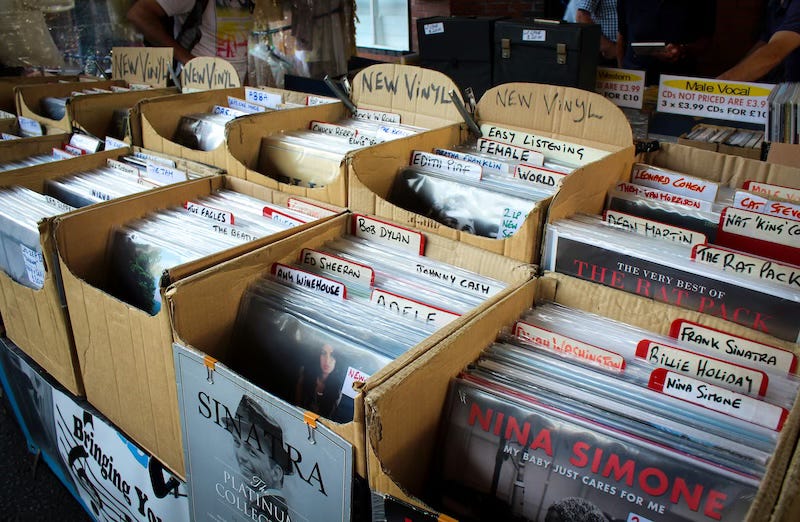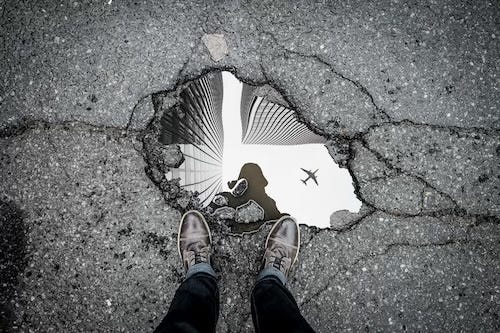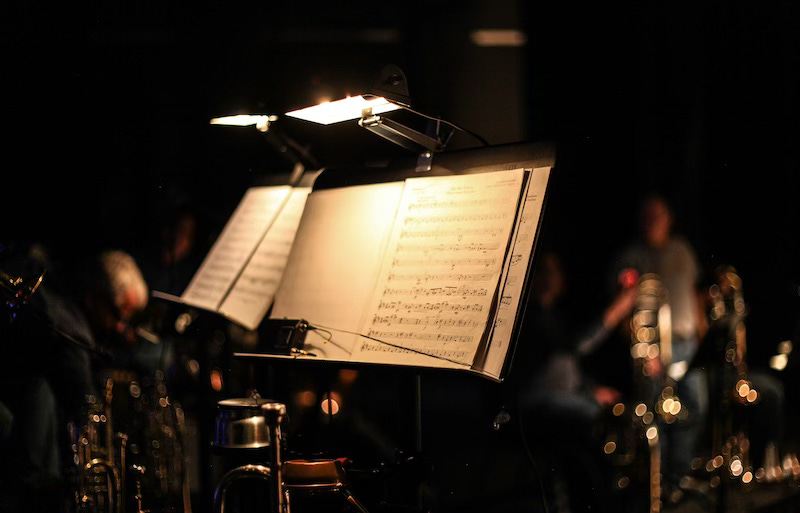Emily Dickinson said it way before Selena Gomez did.
In her 1862 letter to her friend Mary Bowles, Dickinson wrote
“The heart wants what it wants —
or else it does not care.”
It could also be argued, the same is true for the stomach.

In her 2023 memoir, Barbra Streisand recounts that when she was a struggling young performer:
“If some man offered to buy me a drink,
I would say, ‘I’d prefer a baked potato,’
and that often put an end to the conversation.”
Parallel to this, although now extremely strategic and selective with the media, I also recall her saying that when she was starting out she’d do an interview with any reporter who’d buy her a baked potato.
I can relate.
At the start of my career, I often felt the same way—not about baked potatoes, but about the far more precious commodity of Recognition—the theme of this month’s meditation HERE.
Early on, the intoxication of being seen by a mentor I admired often led to massive amounts of free labor.
More recently, it led to one particularly bad decision… but more on that in a moment.

Jay-Z used the phrase famously in his 2001 track “Heart of the City (Ain’t No Love),” but a little research shows it was part of street culture, hip-hop, and the sports world in the ’90s, possibly even the ’80s:
“Game recognizes game.”
None of that was really my direct universe, so I remember vividly the first time I heard it.
Another lifetime ago, a rather famous person dropped into a yoga class I was teaching.
Afterwards, they graciously thanked me for the experience, and when I countered with my own compliment to them, “Game recognizes game” was their response.
It’s such an interesting phrase, acknowledging the other person’s skills and talents by equating them with your own.
It’s in the same spirit as that famous Diana Vreeland quip:
“I loathe narcissism,
but I approve of vanity.”
When said by the right person, it’s actually refreshingly honest—transcending both egotism and false modesty—and bonding through earned esteem.
It’s saying I recognize your greatness… and also my own.

I only learned about this story this week, shared by the astrophysicist and writer Neil deGrasse Tyson.
It was 1974 and the legendary musician Nina Simone was at an all time personal and professional low point.
Her commercial success had faded and she was being cheated and exploited by her record label and managers.
Beyond this, she felt isolated and burned out.
Then, sitting at the Hippopotamus Club in New York, after attending a David Bowie concert, he approached her table and asked for her phone number.
He called her that night at 3 a.m.

His opening line:
“The first thing I want you to know is that you’re not crazy.”
They could not have been more different.
At the time, classically trained Nina was 41, while Bowie was 27—a rising rock and roll and pop icon.
Yet it seems they understood each other perfectly, both visionary artists.
Bowie gave her cash, found her a lawyer, and worked behind the scenes to revive her career without asking for credit.
Perhaps most importantly, as Tyson writes, for Nina Simone, Bowie’s “empathy and recognition were a lifeline.”

I can recall only one relatively recent time where recognition has led me to a bad decision.
Someone deeply entrenched in my transformation/creativity universe—who fervently believed in my success—invited me to participate in a project that, to me, sounded dubious at best.
Years later, after completing my Executive MBA, I would have a score of acronyms and principles like PESTEL (for macro-economic factors) or VRIO (to gauge sustained competitive advantage) with which I could have better explained my position.
Back then, I had only a gut-level knowing that this was an idea that just wouldn’t succeed.
And, sure enough, it did not.
Lesson learned: as seductive as being recognized by someone you respect may be, above all else, you’ve got to trust your own judgment.
You’ve got to recognize yourself.

Part of the reason I let myself be convinced to dive into something I didn’t think would work is also because I think one needs a dose of humility.
Indeed, in his memoir, William Goldman—the legendary screenwriter of Butch Cassidy and the Sundance Kid, All the President’s Men, and The Princess Bride—famous says:
“Nobody knows anything.”
He goes on to say:
“Not one person in the entire motion picture field knows for a certainty what’s going to work. Every time out it’s a guess—and, if you’re lucky, an educated one.”
It’s not just true about movies, of course.
Eduard Hanslick, one of the most famous music critics of the day, wrote a scathing review of Brahms’ Piano Concerto No. 1 (Listen HERE.)
“It is not a concerto, but a dispute between piano and orchestra.
The two seem to be at odds—like two very intelligent people arguing.”
Irony alert: the very thing Hanslick criticized—that argumentative, symphonic quality—is now revered as what makes that concerto brilliant and innovative.

Sometimes even the geniuses involved are surprised.
Henryk Górecki’s Symphony No. 3 was written in 1976 and pretty much ignored.
It’s slow, meditative, and you could even say, a complete downer.
There are three movements, each built around a cry of grief in Polish from different mothers.
These range from a 15th-century lament, a Silesian folk song, and a message scratched on a Gestapo cell wall by an 18-year-old girl.
Sixteen years later, in 1992, for reasons no one has ever figured out, a recording by the brilliant Dawn Upshaw (soprano) and the London Sinfonietta became a global sensation (You can LISTEN HERE).
It topped the classical chart for months, selling over a million copies—something almost unheard of for modern classical music.
Górecki himself was perhaps the most shocked:
“I do not know how to explain it…
All I can say is that perhaps people
find something in this piece that they need — something they lack.”
Somehow the public recognized its magnificence, summarized in a quality that one critic praised:
“It made silence sing.”

Like Hanslick’s takedown of Brahms, even the greatest genius can go unrecognized.
And as William Goldman’s “Nobody knows anything” stated—and Górecki’s surprising success proves—even creators can fail to recognize what they’ve accomplished.
While sometimes the quest for recognition can lead us astray—willing to do anything for whatever baked potato we crave—often it can be truly transformative, even life-saving.
As Tyson wrote of Nina Simone and David Bowie:
She returned to the piano, not because the world demanded it, but because someone had reminded her of her worth and her place in the world.
Their story is a testament to the power of empathy and the impact one person can have on another’s life.
As Nina herself once said, “It’s an artist’s duty to reflect the times.”
And in that moment, Bowie reflected back to her the strength and brilliance she had almost forgotten.
I invite you to listen to his cover of one of her greatest hits, Wild is the Wind. (Simone’s 1966 recording HERE, Bowie’s 1976 cover—2 years into their friendship—HERE.)
Theirs is a perfect story of Game recognizing Game, a model for us all for just how powerful such recognition can be, and at times, how absolutely necessary.
May this month bring moments where you feel fully recognized—and even more powerfully, where you recognize your own brilliance.
Indeed, those are the moments where the silence sings.

